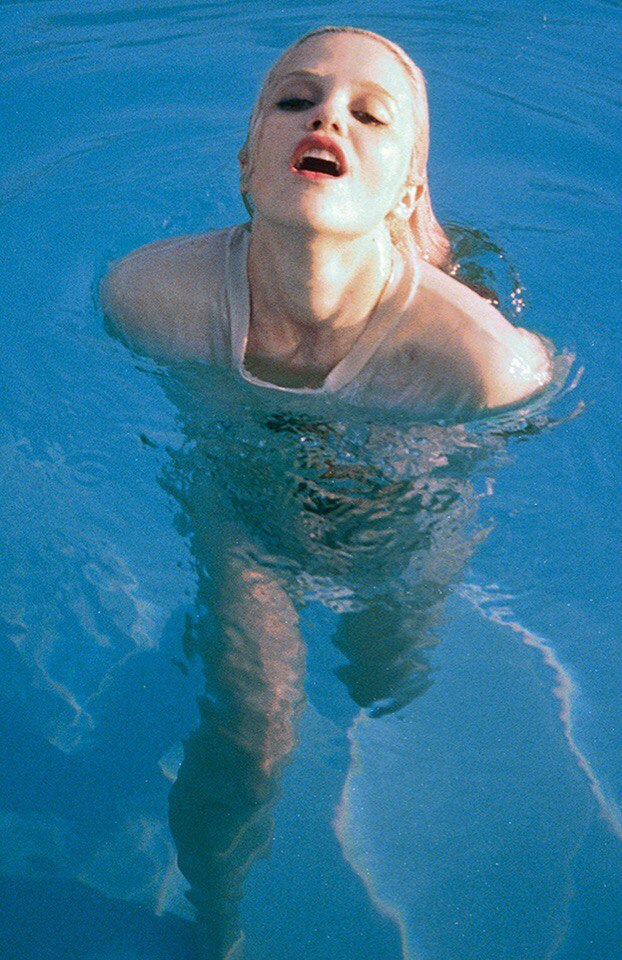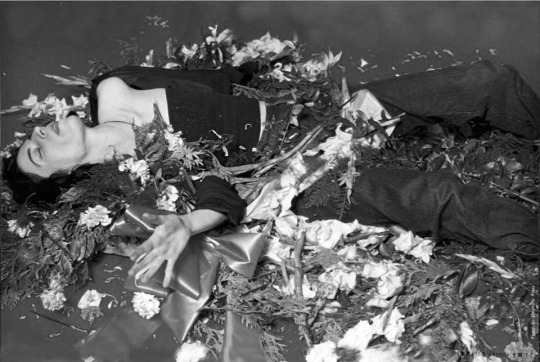my glances are a wire on the horizon where swallows rest
Don't wanna be here? Send us removal request.
Photo

Sky Ferreira photographed by Sandy Kim for Playboy (2016)
5K notes
·
View notes
Photo


Jennifer’s Body (2009) dir. Karyn Kusama
19K notes
·
View notes
Text
I would have called but I’ve been in the bathtub for hours, waiting to feel real.
— Liz Worth, from “New math,” The Truth Is Told Better This Way
3K notes
·
View notes
Text
emily dickinson suggestion: be so reclusive that people in your town refer to you as “the myth”
57K notes
·
View notes
Text
“I still tend to decay / back into myself.”
— Franz Wright, from God’s Silence: Poems; “The Beloved Illusory,”
6K notes
·
View notes
Text
“I reply with a whisper to a thunderous calling.”
— Wislawa Szymborska, from Selected Poems; “A Large Number Analysis,”
1K notes
·
View notes
Quote
But no one has ever said that the universe is guided by what we, in our petty myopic corners of space and time, might have originally thought was sensible. It certainly seems sensible to imagine that a priori, matter cannot spontaneously arise from empty space, so that something, in this sense, cannot arise from nothing. But when we allow for the dynamics of gravity and quantum mechanics, we find that this commonsense notion is no longer true. This is the beauty of science, and it should not be threatening. Science simply forces us to revise what is sensible to accommodate the universe, rather than vice versa.
Lawrence M. Krauss, A Universe from Nothing: Why There Is Something Rather than Nothing (via provst)
167 notes
·
View notes
Quote
Once, I kissed someone and I’m afraid it ruined the world. I’ve learned it’s not what you do with the knife—it’s how you hold it after. But how do you hold something like that? Something that never stops baring its teeth; a voiceless dog, all bite, no bark.
Yasmin Belkhyr, from “Surah Al-Fatiha,” Bone Light (via lifeinpoetry)
8K notes
·
View notes
Photo

Index of First Lines | Emily Dickinson: The Complete Poems
30K notes
·
View notes
Text
the introduction in 20th century womens poetry edited by fleur adcock is one of the most honest and telling descriptions of women in poetry and the history of how disregarded it is. it mentions the fact that we do not know how many women poets desevered to be published but were not. the minds of many out there were never appreciated to the fullest i cant find comfort in knowing this, fuck, no one can probably. another point brought up that the editor highlighted on, in which i dont think ive seen anyone talk about this, sadly, is the fact that men were so dominating in the publishing industry. the word “poet” was a simply a vague statement referring to a man, a poet was a male, maybe a female, when other factors played into it, meaning, if the writer had her work recognized for all the wrong reasons (which unfortunately was the case mostly) ect. affairs, crimes, exposure due to negative actions. very rarely would you see a woman recognized for what she is, a poet, a writer, an equal. in most cases she would underestimate herself due to the societal standards and teachings embedded into the system, she herself would not take herself seriously, nor her craft. reality now is quite different, even if the male dismisses the womens poetry, theres women themselves that want to read it. awareness and growth have played a huge role in this, but, i’d like to believe that women have been aware from the beginning of time, but, only were limited, taught to stay humble, taught to not speak from the heart, only when told to do so if theyre serving someone else. the word “womens poetry” in itself is a fault, occupying the “womens poetry” section of the bookshelf rather than the “poetry section”, courses taught in universities as “womens studies” rather than “literature studies”. fleur points that this maybe a purposely made by other women themselves, a radical seperatist attiude, a rejectment of partiachal standards, refusing to speak the language of the oppressors, making this poetry selective to the undifferentiated — other women. surely men do not speak the same language as we do, they can not fully understand the tones and underlying backgrounds to the voices we hold, for women to sometimes make poetry exclusive is only but the minimum.
#this introduction is so so so nicely written some of the things i myself have failed to think about#my library has some gems i havent read all of this yet but this is weighing on my mind i had to write something about it#thoughts#fleur adcock
0 notes
Photo

Patti Smith by Lynn Goldsmith, 1975
20K notes
·
View notes
Quote
You can’t touch anything without turning it into an angel.
Anne Sexton, from a letter to Stanley Kunitz featured in A Self-Portrait In Letters (via violentwavesofemotion)
3K notes
·
View notes
Quote
…I was happy. Everything was seething with beauty. The heat and dust and ache of it, the enigmatic endurance of the silent and inaccessible…
Idris Anderson, from Mrs. Ramsay’s Knee: Poems; “Fresco,” (via violentwavesofemotion)
557 notes
·
View notes
Quote
…I shall struggle with my heart…
Fyodor Dostoevsky, from Complete Prose Collection; “The Brothers Karamazov,” (via violentwavesofemotion)
1K notes
·
View notes
Quote
He only felt that she was looking at him and that there was no need to worry about anything. She was here to look after things. It was all right. Everything was.
Katherine Mansfield, from The Collected Stories; “The Stranger,” (via violentwavesofemotion)
279 notes
·
View notes
Quote
The air is like silk. I do feel much better.
Virginia Woolf, from a diary entry c. June 1925 featured in Selected Diaries (via violentwavesofemotion)
2K notes
·
View notes
Quote
I like such awfully unfashionable things and people. I like sitting on doorsteps, and talking to the old woman who brings quinces, and going for picnics in a jolting little wagon, and listening to the kind of music they play in public gardens on warm evenings, and talking to captains of shabby little steamers, and in fact, to all kinds of people in all kinds of places. But what a fatal sentence to begin. It goes on for ever. In fact, one could spend a whole life finishing it.
Katherine Mansfield, from a letter to Sydney Schiff written c. May 1927 (via violentwavesofemotion)
730 notes
·
View notes